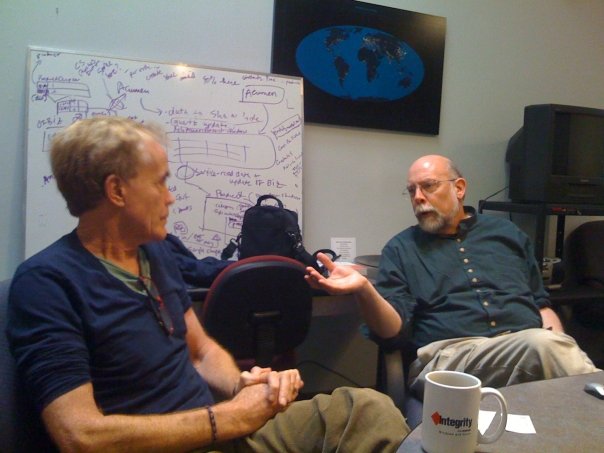Many law firms have responded to a worsening business climate by deferring employment start dates for incoming associates. In many cases, the deferral carries a stipend intended to support pro bono work by the associate. As this AmLaw Daily article indicates, the mechanisms by which all this will work are not yet solidly worked out.
We’d like to help out. Here at the LII, we can provide structured and worthwhile opportunities for those who are seeking a public-interest berth. Since November, we’ve been talking with the Cornell Law School’s Assistant Dean for Student and Career Services — an innovator who is really concerned about what’s happening to our current students and recent grads. Here’s what we’re going to do:
Initially, we will offer writer/editor positions on our WEX legal encyclopedia to any recent Cornell grad who comes to us with a plan of work and a mentor. We can’t offer pay, but we can offer exposure, attribution, and a chance to do work that will benefit both the profession and the public while keeping writing and research skills sharp. Because we are entirely Internet-based, our editors can live where they like, and get to work using a web browser. If we have the capacity, we will extend the offer beyond recent Cornell grads; if you’ve got time, we’ve got a place for you to write.
It’s as simple as that. WEX would benefit from any amount of work we can collectively put into it, ranging from fairly simple tasks like writing definitions to crafting more complex analyses like encyclopedia entries. The work will carry the name of its author, and be both visible to the hundreds of thousands who visit the LII site each month and to a professional audience that will (no doubt) offer feedback, positive and negative. (How visible? Search Google for “bankruptcy law”, “environmental law”, or “securities”).
To anticipate some questions:
The upper limit on participants is set by our capacity to supervise them. That’s the main reason we’ve asked applicants to provide signed agreement from a mentor who will supervise their work. That might be someone from their firm, an attorney in another practice, or a teacher at their law school. We do not have a strict limit on the number of participants in mind; we’ll stop taking people when we think we’ve run out of capacity to supervise them. We are reserving 30 places for Cornell graduates. Beyond that, we will consider applications in the order received.
As that might suggest, we’re very interested in talking to people who want to put together focussed, self-supervising teams — we’re open to differently-structured proposals from other law schools, law firms, and so on. For example, a school or firm might choose to field a specialized team working under internal supervision by their own senior people (we have a particular need for such teams to work on narratives in our American Legal Ethics Library — there are 26 states for which we have none as yet). If you are interested in an alternative structure that would result in the creation of significant content in WEX, let us know.
Work will start in earnest around June 1; we are even now working on the cloud-computing-based infrastructure that will support this, and sharpening our editorial blue pencils.
What we offer in return for your participation is, above all, an opportunity to research and write, with credit and recognition given to the work of editors and mentors. Attribution is an elusive thing in the wiki world, of course. But we will give (and label articles with) “originator attribution” for those who originate WEX articles; this can include a link to a personal or professional web site. We will also set up an honor roll of mentors and editors, and set up a LinkedIn group for those who participate. We are open to your ideas other forms of recognition. The limits are imposed by simple fairness and by our administrative capacity.
Final words to the wise: we take a very dim view of people who do the bare minimum necessary to meet a posted requirement, and reserve the right to withhold credit for conspicuously adequate work. We are not a resume service, nor are we a venue for lawyer advertising or link farming.
We hope this will be something that helps us, helps you, and builds something that will help the profession and the public. If you’re interested, get in touch via our contact form, using the category “WEX public-service project”.








 We’ve been playing on the same team for years, but we’d never actually met. Yesterday, LII-ers Tom Bruce, Deborah Schaaf, and Dan Nagy met with Jake Warner and the
We’ve been playing on the same team for years, but we’d never actually met. Yesterday, LII-ers Tom Bruce, Deborah Schaaf, and Dan Nagy met with Jake Warner and the 

